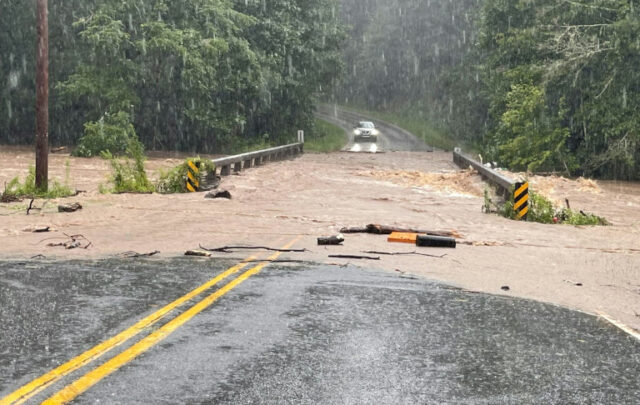Songs of Petroleum: The Autobiography of Jan Lundberg, Independent oil Industry Analyst and Eco-Activist
By Jan C. Lundberg
391 pp. Culture Change Press – Feb. 2011. $18.00.
Diamonds in my Pocket: Tales from a Childhood in Asia
By Amanda Kovattana
195 pp. Bluetoffee – Apr. 2008. $25.00.
 At first glance, Jan Lundberg and Amanda Kovattana seem like unlikely kindred spirits. He’s a former oil analyst turned whistleblower and rock musician, while she’s a British-educated Thai émigré who makes her living helping people become organized. Yet their similarities run deep, beginning with a profound concern for the planet and a flair for writing. Indeed, both are indispensable contributors to one of the top news sites on energy and the environment, Energy Bulletin. Both also happen to be accomplished memoirists, and their memoirs offer rare insights into family relationships, the vicissitudes of wealth and the quandary of being an environmentalist in an environmentally apathetic age.
At first glance, Jan Lundberg and Amanda Kovattana seem like unlikely kindred spirits. He’s a former oil analyst turned whistleblower and rock musician, while she’s a British-educated Thai émigré who makes her living helping people become organized. Yet their similarities run deep, beginning with a profound concern for the planet and a flair for writing. Indeed, both are indispensable contributors to one of the top news sites on energy and the environment, Energy Bulletin. Both also happen to be accomplished memoirists, and their memoirs offer rare insights into family relationships, the vicissitudes of wealth and the quandary of being an environmentalist in an environmentally apathetic age.
Lundberg’s memoir, Songs of Petroleum, delves deeply into the goings-on at his family’s oil market-research firm, Lundberg Survey, from when he was growing up to when he took charge of the company. During that time he came to loath oil money and its atrocities against our planet and all of its poorer inhabitants, as well as against the physical health of everyone alive today, rich and poor. He also learned firsthand how money can tear apart families and change a person’s very character, as it took away his mother and bitterly estranged him from a sister. He eventually left Lundberg Survey to pursue an activist career and attempt to salvage some family unity. Both of these proved mighty struggles, and only the first of them successful.
A child of 1950s Los Angeles, Lundberg grew up at the dawn of America’s postwar economic bonanza. His parents didn’t buy into the consumer culture, however, and weren’t afraid of being thought kooky because of it. Some of their neighbors scoffed at them for feeding their kids “rabbit food” from their garden and refusing to use that miracle pesticide, DDT. The Lundbergs also believed ardently in fighting disease with fasting and other alternative therapies, after a child of theirs survived a life-threatening illness and they credited his survival to a stringent fast. (Years later, Jan’s desperately ill father would himself be written off as gone, only to recover and live another 12 years following a 40-day regimen of nothing but Perrier water.)
Jan would eventually attend UCLA, where he would flourish as a student journalist and environmental lobbyist. Yet he received some of his most valuable schooling while sailing the world with his family as a boy. They sailed for four and a half years, staying in Greece, Mazatlan, Mexico City, El Salvador, Bermuda, the U.S. Virgin Islands and many other places. These years gave Lundberg rich cultural exposure, taught him to love surf music and saw him through danger and adventure on the proverbial high seas. They also taught him sailing and other skills that would one day serve him well as an advocate of carbon-free transport.
The family company was quite well known by the late `60s, and would become famous for accurately predicting the `79 oil crisis. The Lundbergs were acquainted with a number of celebrities, and thus Jan enjoyed some childhood brushes with fame. In fact, even before his father, Dan, was christened America’s “Oil Guru,” he’d had an accomplished writing career and hosted a TV talk show on which he once interviewed science fiction legend Ray Bradbury. Jan recounts how struck he was to learn that Bradbury didn’t drive a car, in autocentric L.A. of all places. Now, writes Jan, “I have a hard time remembering that almost every time someone runs into my car-free-by-choice lifestyle, he or she probably feels the way I did when I ran up against Ray Bradbury’s lifestyle.”
The first forebodings of tragedy in the Lundberg family saga came in the early `80s, when the siblings had reached adulthood and were working for the family business. Division and strife erupted between brothers Jan and Darius on the one hand and sister Trilby on the other. Jan and Darius would eventually sue Trilby for the alleged wrongful death of their mother, Mesa, in 2008. They would contend that Trilby, who was by then company president, had “relieved [Mesa] of a fortune and knowingly hastened her death” with the help mainly of lawyers. Mesa had been in a hospice for her final seven years, even though she wasn’t terminally ill, and had been given the exit drug morphine for no apparent reason. Jan would also relate that the chief coroner investigator had called Mesa’s death “murder or manslaughter.”
Who is right isn’t for this reviewer to judge. However, one previous reviewer has opined that Jan dwells too long on the matter in his book; and in a note to me, Jan acknowledged that this may indeed be the case. The length didn’t bother me, though, and I think that Jan was wise to subordinate much of the material to appendices.
In any event, out of tragedy came inspiration. Jan went on to found the grassroots activist group Culture Change, and it took its name largely from what he had learned during his family ordeal: that we need an entirely new culture, not reforms to the current one.
 Jan Lundberg at home in the redwoods, 2004Culture Change scores an A-plus for political courage and resoluteness, with its stated intention of keeping up the fight until the culture really has changed. It’s unfortunate that this sensible stance has alienated mainstream environmental groups, with their vested interests in the status quo. Lundberg recalls how the manager of a speaking venue vowed never to work with him again because he’d had the forthrightness to tell the audience that there’s no grand “technological fix.” From depaving roads to transporting goods by sail to drastically curtailing household energy usage, there sadly isn’t a Culture Change initiative that’s an easy sell with today’s public.
Jan Lundberg at home in the redwoods, 2004Culture Change scores an A-plus for political courage and resoluteness, with its stated intention of keeping up the fight until the culture really has changed. It’s unfortunate that this sensible stance has alienated mainstream environmental groups, with their vested interests in the status quo. Lundberg recalls how the manager of a speaking venue vowed never to work with him again because he’d had the forthrightness to tell the audience that there’s no grand “technological fix.” From depaving roads to transporting goods by sail to drastically curtailing household energy usage, there sadly isn’t a Culture Change initiative that’s an easy sell with today’s public.
Lundberg truly has lived a life of voluntary simplicity, though he admits that getting there wasn’t an entirely voluntary process. Rather, it was due largely to his naiveté in thinking that there was “a market for the truth.” Years of struggling to make ends meet in the nonprofit sector gave way to years of sleeping on couches and barely scraping together the cash to go to conferences. (He did, however, enjoy some musical fame during this time, when he and his band, the Depavers, performed a song of theirs at Kyoto in ’97 and it wound up on NPR and CNN.) Here was a man who, at the height of his prosperity, had owned a Mercedes and a yacht and raised a family in L.A. But he’s faring better now than when he was at his most destitute, and he’s come to find his life of simplicity liberating.
So too will his book be liberating for a great many readers, helping free them from the dogma of industrial progress. And its appeal isn’t limited to those who already follow energy and the environment. Those simply looking for thought-provoking discussion on travel, sailing, fasting to purify the body or the period flavor of mid-century Hollywood, to name a few topics, will find much to like in Songs of Petroleum.
Diamonds in my Pocket: Tales from a Childhood in Asia by Amanda Kovattana
 At around the same time as the seeds of discord were being sown within the Lundberg family, farther up the California coast a young Amanda Kovattana was going through her own crisis. She was torn between the lofty expectations of her aristocratic Thai family and her yearnings for an artist’s life of simple means in America. She was conflicted about Thai society, with its male bias on the one hand, and a unique family closeness on the other. And she was reluctant to accept Thailand’s maelstrom of change from an obscure Far East outpost to a bustling industrial hub. In short, writes Kovattana, “[T]he diamonds weighed heavily in my pocket during that summer of being twenty.”
At around the same time as the seeds of discord were being sown within the Lundberg family, farther up the California coast a young Amanda Kovattana was going through her own crisis. She was torn between the lofty expectations of her aristocratic Thai family and her yearnings for an artist’s life of simple means in America. She was conflicted about Thai society, with its male bias on the one hand, and a unique family closeness on the other. And she was reluctant to accept Thailand’s maelstrom of change from an obscure Far East outpost to a bustling industrial hub. In short, writes Kovattana, “[T]he diamonds weighed heavily in my pocket during that summer of being twenty.”
The figurative diamonds to which she—and the title of her book, Diamonds in my Pocket—refer represented her guarantee of a life of ease and status back home. The expression had been coined by a college friend who, charmed by her insouciant manner, had said, “It’s like you have these diamonds in your pocket and you can cash them in if you need to.” But this summer her insouciance was being tempered by the specter of having to return, against her will, to a home that had become alien to her.
Her book is a collection of memories from growing up in Thailand, framed by scenes from a return trip in 1999, at age 41, to attend her grandmother’s funeral. By then Kovattana was settled in San Mateo County, California, self-employed as a professional organizer and living with her soulmate and a spry tabby named Tango. It was far too late to cash in her diamonds, but she was to find that this trip held unexpected connections in store for her.
Kovattana’s parents had met during college in London, her father studying engineering and her mother—an exuberant, fair-haired Londoner—psychology. The two quickly married and moved to Thailand where they had their only child. This mixed parentage gave Kovattana a fascinating vantage point from which to view the world, and she dedicates her book, “To my parents, for the gift of a biracial, bilingual, and tricultural perspective.”
Her grandmother, Khun Ya, had been a challenging figure. She’d certainly led an interesting life. As chief of protocol at the Thai Government House in Bangkok, she’d met celebrities like Queen Elizabeth II, Neil Armstrong and Ladybird Johnson. She could be quite intimidating, with her squat “bulldog” bearing and stern face, and she was a demanding and domineering family matriarch. She was always pressuring Kovattana and her father to leave the States and assume what she deemed to be their rightful roles back home. Still, Kovattana admired her and identified deeply with her non-materialistic values.
Like Lundberg, Kovattana is no stranger to bitter family feuds over money and control of estates. Her father had long had it in for his half-sister, and favorite aunt of Kovattana’s, Ah Padt. He’d become convinced that a dispute between Ah Padt and their mother was to blame for their mother’s debilitating strokes at the end of her life. Seeking vengeance, he had made sure that their mother left the family home solely to him. “Oh, these untidy covert family quarrels!” Kovattana reflects acerbically. “That’s what you get with a non-confrontational approach—unfinished business, death without resolution.”
 It was many years before Kovattana had found her true identity as a native of the Far East drawn to Western thinking and ideals. Her mother had insisted on a British education even when they were in Thailand, where that was technically illegal. Before she was out of grade school, the family had moved to California, where she found even less in common with her schoolmates. Thai culture had almost no presence in American life at that time, and she laments that she couldn’t convey to her American classmates the drenching Asian monsoon rains or what a good hiding place an empty clay water jar made.
It was many years before Kovattana had found her true identity as a native of the Far East drawn to Western thinking and ideals. Her mother had insisted on a British education even when they were in Thailand, where that was technically illegal. Before she was out of grade school, the family had moved to California, where she found even less in common with her schoolmates. Thai culture had almost no presence in American life at that time, and she laments that she couldn’t convey to her American classmates the drenching Asian monsoon rains or what a good hiding place an empty clay water jar made.
Nor could her family help her through her identity crisis. “Their identities,” she explains, “were informed by karma and this they accepted with little comment. How unnecessary my explanations would seem to them, the ravings of a lunatic.” Kovattana would come to identify as an American but would hang on to her childhood nickname, Noo (meaning mouse), out of a need to foster a Thai identity as well.
The book deliciously describes the sights and sounds of Kovattana’s Thai home. The family’s lavish, gated compound was “that enclosed paradise of my childhood.” She once spied her grandmother cooking cut pampas grass in the backyard, and the grass was “bright orange and limp as a wet cat.” And the congested, overdeveloped Bangkok that greeted her as an adult was evocative of the oppressive future in the science fiction film Blade Runner. “City planning, termite style,” quips Kovattana.
The author’s environmental awakening put her at odds with her family’s values. In an early scene of the memoir she embarrassingly apologizes for a relative’s energy-guzzling van with its spiffy home entertainment system. She also movingly describes the factory soot that accumulated on furniture and in closed cupboard drawers. “Such was the price of progress,” she sighs.
Kovattana’s elegant memoir won honorable mentions at the 2008 London Book Festival and the 2009 San Francisco Book Festival.* It closes on the author’s own personal closure as she travels back to California with three souvenirs of Khun Ya’s life: a medal given to her by Queen Elizabeth, a photo of her curtseying to the queen and her high school diploma. They’re mementos of an old Bangkok, a leisurely, secluded port unmoved by the globalization shaping up around it. A Bangkok that no longer exists, Kovattana realizes, except within her heart—where it’s far more of a comfort than any pocketful of diamonds.
* “2008 London Book Festival Winners,” London Book Festival, Dec. 10, 2008, http://londonbookfestival.com/portal/content.asp?ContentId=382 (accessed Oct. 23, 2011); “Winners List,” The San Francisco Book Festival, May 3, 2009, http://www.sanfranciscobookfestival.com/winners_2009.htm (accessed Oct. 23, 2011).
Frank Kaminski is an ardent Seattle peak oiler, a connoisseur of post-oil novels and a regular book reviewer for Energy Bulletin. Email him at frank.kaminski AT gmail.com; visit his site here.






